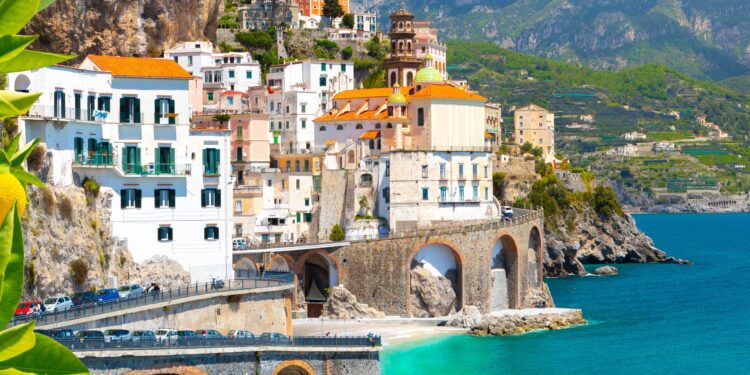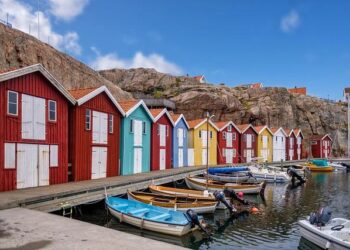Italy is set to welcome 1,000 refugees through a newly established humanitarian corridor, marking a significant step in the country’s ongoing efforts to provide safe passage for vulnerable migrants. The initiative, announced by Italian authorities and highlighted by InfoMigrants, aims to facilitate the orderly and legal entry of displaced individuals seeking protection. This move reflects Italy’s commitment to international humanitarian obligations amid continuing challenges posed by irregular migration across the Mediterranean.
Italy’s New Humanitarian Corridor Initiative Set to Welcome 1,000 Refugees
Italy has finalized a groundbreaking agreement aimed at facilitating the safe and legal arrival of approximately 1,000 refugees within the next year. This humanitarian corridor initiative represents a collaborative effort between government agencies, NGOs, and international partners to provide vulnerable individuals and families with immediate protection and integration opportunities. The program prioritizes those fleeing conflict zones and humanitarian crises, ensuring their transit is conducted under strict safety and legal standards.
The initiative will focus on several key areas:
- Fast-tracked relocation procedures to minimize delays
- Comprehensive support services upon arrival, including housing, healthcare, and language training
- Community integration programs designed to foster social inclusion and employment access
Moreover, coordination with international organizations will guarantee that all participants receive adequate protection from exploitation and trafficking risks during their journey. This innovative approach aims to set a precedent in European refugee policy through humanitarian and orderly resettlement practices.
| Key Figures | Details |
|---|---|
| Refugees to be received | ~1,000 |
| Primary countries of origin | Syria, Sudan, Eritrea |
| Supported by | Italian government, UNHCR, humanitarian NGOs |
| Estimated integration period | 12 to 18 months |
Detailed Overview of Italy’s Refugee Resettlement Process and Partner Organizations
Italy’s refugee resettlement process operates through an intricate coordination between governmental agencies and various NGOs, anchored by the humanitarian corridor initiative. This innovative system prioritizes the safe and legal arrival of vulnerable refugees, particularly from conflict zones and politically unstable regions. Key organizations collaborating in this effort include Caritas Italiana, Community of Sant’Egidio, and Federazione delle Chiese Evangeliche in Italia (FCEI). These partners manage critical stages such as pre-departure orientation, health screenings, and social integration programs upon arrival. The Ministry of Interior oversees visa issuance and security vetting, while the Ministry of Health ensures necessary medical support through tailored assistance schemes.
Below is a snapshot of the key stakeholders and their primary roles within the resettlement framework:
| Organization | Role | Focus Area |
|---|---|---|
| Caritas Italiana | Coordination & social services | Reception & community integration |
| Community of Sant’Egidio | Humanitarian corridor facilitation | Pre-departure support & escort |
| FCEI (Federazione delle Chiese Evangeliche in Italia) | Legal assistance & advocacy | Documentation & rights protection |
| Italian Ministry of Interior | Security & visa processing | Safe entry & identification |
| Italian Ministry of Health | Medical screening & healthcare | Health support & follow-ups |
This systematic approach ensures that each refugee’s journey is handled with care, emphasizing protection and dignity. Moreover, resettlement sites across Italy provide language training, job placement assistance, and psychological counseling, all tailored to facilitate smooth community integration. The newly scheduled deal underlines Italy’s ongoing commitment to expand these corridors, set to welcome 1,000 refugees through safe and legal means.
Recommendations for Strengthening Integration and Support Services in Host Communities
To ensure the successful integration of 1,000 refugees arriving through the humanitarian corridor, it is imperative to bolster local support services with a multi-faceted approach. Strengthening language and vocational training programs will empower newcomers to participate fully in the workforce and community life. Likewise, enhancing mental health and social counseling services is essential to address the trauma many refugees carry, promoting resilience and long-term well-being. Collaboration between NGOs, local authorities, and community groups can facilitate tailored responses that meet both individual and communal needs.
Moreover, establishing clear information channels and community engagement platforms can foster mutual understanding and reduce tensions in host areas. Key recommendations include:
- Creating integration hubs that serve as one-stop centers offering legal aid, employment assistance, and cultural orientation.
- Supporting local schools with additional resources to accommodate and support children from refugee families.
- Training local service providers in cultural competence to enhance the quality of assistance and inclusion.
| Support Area | Recommended Action | Expected Impact |
|---|---|---|
| Education | Additional language classes and school integration programs | Improved academic performance and social cohesion |
| Employment | Vocational training linked with local job markets | Higher employment rates and economic independence |
| Mental Health | Accessible counseling and community support groups | Reduced psychological distress and enhanced community ties |
In Summary
As Italy prepares to welcome 1,000 refugees through the newly established humanitarian corridor, this initiative underscores the country’s ongoing commitment to providing safe and legal pathways for those fleeing conflict and persecution. While challenges remain in ensuring effective integration and support, the deal marks a significant step forward in humanitarian cooperation within Europe. Stakeholders will be closely monitoring the implementation and impact of this corridor as Italy continues to navigate the complexities of migration in an increasingly interconnected world.
















